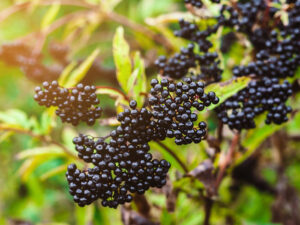 Can Food Act as Medicine? All You Need to Know& cell phones around schools, young children & fetuses
Can Food Act as Medicine? All You Need to Know& cell phones around schools, young children & fetuses
What you choose to eat has profound effects on your overall health.
Research shows that dietary habits influence disease risk. While certain foods may trigger chronic health conditions, others offer strong medicinal and protective qualities.
Thus, many people argue that food is medicine, yet, diet alone cannot and should not replace medicine in all circumstances. Although many illnesses can be prevented, treated, or even cured by dietary and lifestyle changes, many others cannot…. It’s HERE! (Continue to full article)
 Cut Sugar to Prevent Cancer
Cut Sugar to Prevent Cancer
Skip the sugary stuff! The average American consumes about 180 pounds of sugar each year. That’s roughly one-half pound of sugar every single day, a tremendous increase from just over a century ago, when consumption was a measly one pound annually.
The problem? Sugar feeds cancer, a disease that will afflict one in two Americans during their lifetime and currently claims more than half a million lives each year. Otto Warburg won the Nobel Prize in 1931. He discovered the link between sugar and cancer… (Continue to full article)
 Obesity: America’s Self-inflicted Preexisting Condition
Obesity: America’s Self-inflicted Preexisting Condition
Consuming too many potato latkes and Christmas cookies has left its mark on our waistlines. Unfortunately for Americans and their medical care, the seasonal overeating seems to last all year. Indeed, the American Medical Association has declared that obesity is a disease.
It may be more accurate to describe obesity as a contributor to certain diseases. Obesity raises the risk of premature death, heart disease, high blood pressure, stroke, type 2 diabetes, gallbladder disease, breathing problems, certain cancers, and osteoarthritis. Certainly, obesity can result from certain uncommon diseases and hereditary factors, but most people become obese simply because they eat too many unhealthy foods and do not exercise…. (Continue to full article)
 Elderberries Block Flu Virus From Attaching To and Entering Human Cells
Elderberries Block Flu Virus From Attaching To and Entering Human Cells
Scientists have identified a chemical compound in elderberries that immediately immobilizes the flu virus.
Previous studies have already shown elderberry extract can ease flu symptoms and cut the duration of the illness in half, but a new study explains exactly how the ancient remedy works. The unique phytochemicals found in elderberries block the virus from entering, or even attaching to, our healthy cells, when taken preventatively during flu season.
Even if the flu has already taken hold, the compound prevents the virus from replicating, eliminating symptoms within 48 hour… (Continue to full article)
 Butter Nutrition 101: Is Butter Bad for You or Is Butter Good for You?
Butter Nutrition 101: Is Butter Bad for You or Is Butter Good for You?
Are you one of those people who still believe that butter is bad for you? Butter may have had a bad rep over the last decade but it hasn’t always been this way. In the 1900s, butter was a food staple and was used in just about every recipe.
Everyone seems to have a different opinion about butter these days. The government, doctors, and even the media constantly contradict each other on this issue. So, you might be wondering if butter is good for your health or not? While you were told to avoid butter, new research is challenging this myth… (Continue to full article)
 Asparagus is a highly alkaline food scrubbing out the bladder, kidneys, and protects liver health
Asparagus is a highly alkaline food scrubbing out the bladder, kidneys, and protects liver health
Asparagus has been used to treat problems involving inflammation, such as arthritis and rheumatism, assist with inflammation of the urinary tract and may also be useful for nerve pain and swelling (neuritis).
Asparagus has a truly unique combination of anti-inflammatory nutrients such as flavonoids: quercetin, rutin, kaempferol and isorhamnetin. Asparagus is also rich in saponins compounds including: asparanin A, sarsasapogenin, protodioscin, and diosgenin. Sarsasapogenin is being researched for its potential benefits for amyotrophic lateral sclerosis (ALS), also known as “Lou Gehrig’s Disease.” Inflammation maybe responsible for the death of motor neurons in ALS … (Continue to full article)
